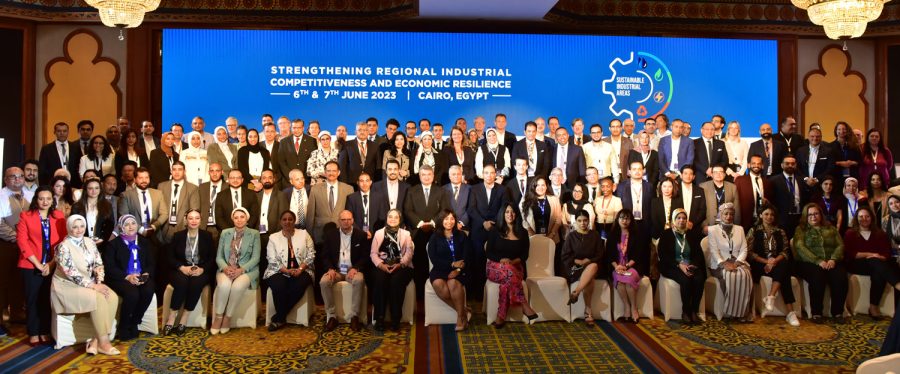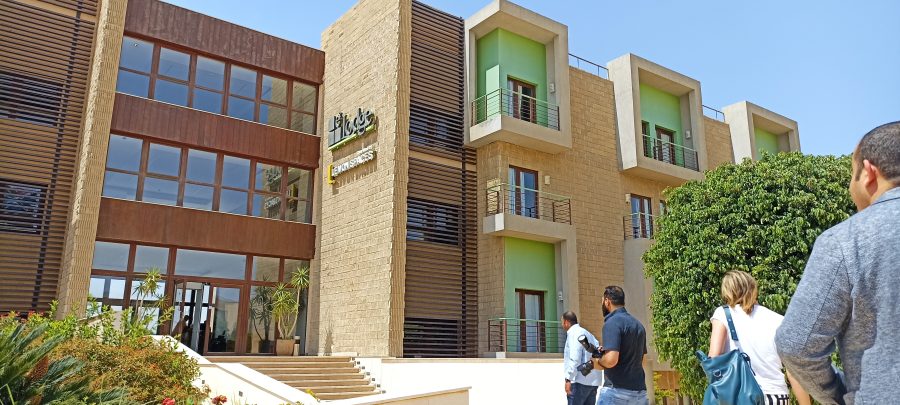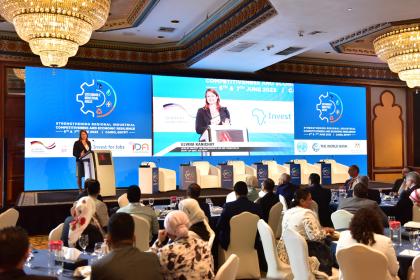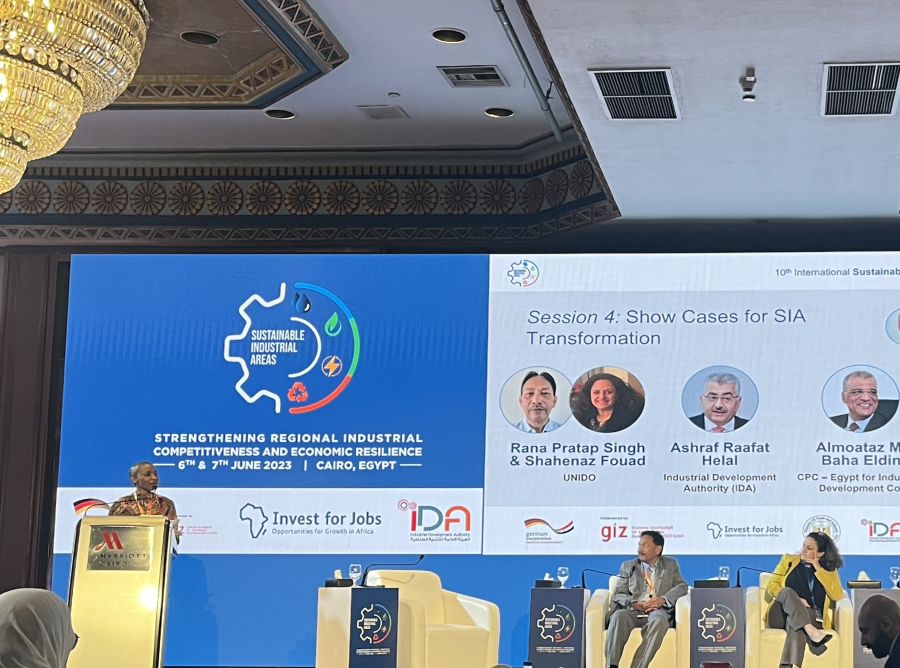10th International Sustainable Industrial Areas Conference in Cairo
Strengthening Regional Industrial Competitiveness and Economic Resilience
Industrialisation is a priority for many governments in developing and emerging economies. While it comes with strong potential for economic growth, social and environmental consequences of an accelerating industrialisation need to be considered.
Therefore, the 6th to 7th of June 2023 witnessed the convening of the 10th International Sustainable Industrial Areas Conference (SIA Conference) in Cairo, Egypt. Curated under the theme “Strengthening Regional Industrial Competitiveness and Economic Resilience”, the two-day event provided an important platform for lively debates, insightful engagements, and learning exchanges. Prior to the event, pre-conference site visits were conducted with four industrial parks located in Cairo; namely Polaris International Industrial Parks, CPC Industrial Park, ElSewedy 10th Industrial Park and Industrial Development Group (IDG).
During the two days, around 250 attendees representing multiple sectors from more than 20 countries converged to cover diverse topics, ranging from just transition towards carbon neutrality through industrial symbiosis and circular economy approaches as well as the role of private sector development. Furthermore, presentations were held on several topics, including financing SIA, SIA concept planning and capacity building, as well as the creation of green jobs. The Natural Resources Stewardship Programme, represented by Ms Amanda Nyingwa, presented at the conference on Methodologies for Supporting Sustainability and Resilience in Economic Zones.

Key takeaways
The rich information emanating from presentations, site visits and more informally during walkthroughs of exhibited booths from industrial developers brought about the following key takeaways for the aim of strengthening regional industrial competitiveness and economic resilience:
- Mainstream the unconventional – “inclusivity and liveability” – for a competitive industrial park: Ensuring an inclusive and liveable industrial park is still relatively viewed as unconventional. However, these very aspects make an industrial park competitive in terms of investor location and potential employees, as it allows firms to attract the best talent. As examples, IDG has integrated a pharmacy, day care centre, hotel and coordinated transport facilities for workers within their park; similarly this is the case for CPC Industrial Park. These unconventional additions which strike a balance between social and economic needs have the potential to increase the competitiveness and attractiveness of these industrial areas.

- Capacity building matters for informed uptake of sustainable industrial area concepts: Ensuring integration of sustainable industrial development approaches is a highly engaging process which can often be overwhelming for industrialists and developers. As a result, lesson learning events and capacity building initiatives which help them navigate and map out context-specific measures for sustainable industrial development are vital. Therefore, as more industries and industrial areas are compelled to transition towards cleaner production processes, it is imperative that a broader suit of capacity building initiatives are unveiled – particularly through development organisations like GIZ, United Nations Industrial Development Organisation (UNIDO) and World Bank.

- Private sector is under pressure to ensure green production – what stimulants exists to move things forward? A keyacknowledgement during the conference was that manufactures and private sector understand the urgency for cleaner and more resource efficient production. This acknowledgement was also followed with the question on what resources exists to stimulate, incentivise and recognise efforts for cleaner production? The Eco-Industrial Park Framework, the Net Zero Water Concept and the Access to Finance Tool developed by the National Cleaner Production Centre in South Africa were some of the resources tabled. Additionally, an announcement of steps towards ensuring that the EIP Framework is translated to ISO Standard was mentioned as one of the levers for recognising green production. However, it is clear that more action is required to stimulate efforts for resource efficiency and cleaner production.
- Bold action and collective efforts are needed from public, private sector and civil society – Bold action is needed from the public sector on eco-industrial development. This action can take the form of political will or be more institutionalised in the form of national policy or decrees. The latter is the case with Vietnam’s Ministry of Planning and Investment. Such bold actions support collective movements towards ensuring that the industrial park landscape of a country embodies eco-industrial development across various levels. In addition, it catalyses action for cross-sectoral collaboration with private sector and civil society within industrial areas. Multistakeholder partnerships facilitated through the NatuReS Natural Risk and Assessment Framework have proven to be critical vehicles for driving localised action while offering potential for wider societal benefits.

About SIA Conference Concept and Convenors
The International Conferences on Sustainable Industrial Areas (SIA) bring experts from all over the world together to discuss recent trends, best practices, and future development of SIA. The conferences serve as an international platform for exchanging knowledge about sustainable industrial development of industrial areas worldwide. In the past, there have been similar International SIA Conferences in India, China, Indonesia, Turkey, Mexico, Morocco, Egypt, and Ethiopia. The approach of “Sustainable Industrial Areas (SIA)” promotes sustainable industrial development by balancing environmental, economic, and social aspects.
The SIA Conference was organized by the Deutsche Gesellschaft für Internationale Zusammenarbeit (GIZ) under the “Invest for Jobs” programme and as part of implementing the special initiative “Decent Work for a Just Transition” (SI Jobs) on behalf of the German Federal Ministry for Cooperation and Economic Development (BMZ). The conference is jointly organized with the World Bank Group (WBG) and the United Nations Industrial Development Organization (UNIDO) – together with the Egyptian Ministry of Trade & Industry (MTI) and the Industrial Development Authority of Egypt (IDA).